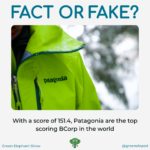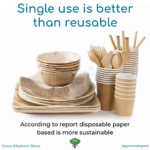Do you perceive your Contacts as an important organisational Keystone? You should, as without them you wouldn’t have customers, suppliers or be successful. What is the Contacts Keystone and how is it applicable to you and your organisation?
It’s easy to think that Contacts is a list of names and communication details in your address book. This organisational Keystone is far more detailed than that. What about the contacts you don’t have… yet. Are all contacts customers? Are all aspects of the Contacts Keystone names and email address? No and No…
For the full Keystone picture, take a look at the Gydeline Guardian.
Elements
Contacts Keystone includes the following elements:
- Customers – Clients, consumers, shoppers, subscribers, users
- Advocates – Supporters, recommenders, reference sites, testimonials
- Personas – Market identity
- Partners – Collaborators, suppliers, resellers
- Insights – Statistics, feedback, survey results, complaints, compliments
- Success – Satisfaction, happiness, repeat business
- Leads – Potential customers and collaborators, interested individuals
Acquisition
Some care is required in collecting contacts. Being conscientious of how you collect and process personal data is a key consideration. Company and professional data is a little less restricted but also needs to be thought through. Purchasing a list of emails or telephone numbers is not as simple as it used to be and may not reflect your values and ethics.
Part of the contacts Keystone is also data which informs you about your market – elements such as personas need to be developed, statistical insights needs to be gathered and interpreted and demonstrating and recognising success requires planning and thought.
The various forms of networking is a key method of acquisition for customers. Online research is a popular route to finding suppliers and partners As for feedback, there are many routes to discovering more about your contacts, which each organisation needs to establish for its own needs.
Utilisation
Contacts are used to understand, locate, connect with and maintain relationships with people and organisations outside your own. Contacts can create revenue. They can also contribute to creating and maintaining any of the other Keystones.
Maintenance
People need to maintain the contacts Keystone. Information Keystone elements, such as policies, processes and procedures are needed to ensure that the Contacts Keystone is kept up-to-date, accurate and fit for the organisations needs.
Disposal
As with Information, Contacts should be destroyed or deleted once they have served their purpose.











